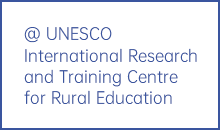On 17-21 August, the China-Southeast Asia Capacity Development Workshop on TVET Digital Transformation for Sustainable Rural Development (ASEAN-China TVET Management Benchmarking Programme) was successfully held in Beijing. The workshop was organized by the UNESCO International Research and Training Centre for Rural Education (UNESCO INRULED), the Southeast Asia Ministers of Education Organization Regional Centre for Technical Education Development (SEAMEO-TED), the ASEAN-China Centre (ACC), and the China Education Association for International Exchange (CEAIE). It was co-organized by the UNESCO Regional Office for East Asia (UNESCO Beijing) and the UNESCO Chair on AI in Education, with strong support from the China Institute of Education and Social Development at Beijing Normal University, the China-ASEAN Specialized Committee for Education Cooperation and Development of the China Association for Non-Government Education, and the China-ASEAN Agricultural TVET Industry-Education Integration Community (CAATIEIC). The workshop brought together nearly 40 TVET policymakers, vocational college principals, scholars, and industry representatives from China and 11 Southeast Asian countries, to discuss strategies for advancing vocational education in the context of digital transformation and smart education development.
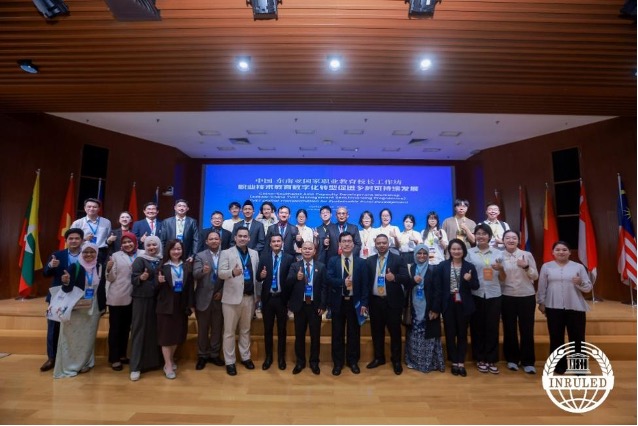
On the afternoon of 18 August, the Opening Symposium of the Workshop was held at the Jingshi Hall of Beijing Normal University, attracting over 2,500 participants both online and offline.
During the opening session, H.E. Mr. SHI Zhongjun, Secretary-General of the ACC, emphasized that as the China-ASEAN Comprehensive Strategic Partnership continues to gain robust momentum, industrial upgrading, digital transformation and rural revitalization have created urgent demand for highly skilled talents. He stated that the ACC will continue to serve as a platform for in-depth exchanges and practical cooperation in vocational education, injecting new impetus into digital transformation and regional integration.
Datuk Dr. Habibah Abdul Rahim, Secretary-General of the SEAMEO Secretariat, stated that the digital transformation of TVET plays a crucial role in promoting sustainable rural development, yet barriers such as the digital divide have intensified the challenges for the rural population in skills transformation and upgrading. She hoped that by sharing best practices in relevant fields, the workshop would promote experience exchange and practical cooperation between China and Southeast Asian countries to jointly build a more forward-looking and adaptive TVET system.
Prof. Shahbaz Khan, Representative and Director of UNESCO Beijing, delivered a video address in which he pointed out that rural education and sustainable development are key to achieving inclusive and quality education and advancing the 2030 Agenda for Sustainable Development. He emphasized the importance of leveraging TVET to empower the rural population, promote industrial and economic development, and rural revitalization. He also viewed the symposium as an opportunity to promote experience sharing, regional cooperation, and policy experimentation to help achieve common goals.
During the Keynote Presentation session, Mr. HUANG Kan, President of the Beijing Education Association for International Exchange, shared Beijing’s practices in advancing international cooperation in TVET. He proposed several concrete measures in promoting cooperation and exchange in TVET between ASEAN countries and China, including promoting skills training and Luban Workshops, school-enterprise cooperation and industry-education integration, teacher and student exchanges and capacity building, building government and institutional support platforms, and expanding mutual recognition of TVET certificates, thereby enhancing the quality and efficiency of educational cooperation between Beijing and ASEAN.
Mr. Khat Prumsochetra, Deputy Director of SEAMEO-TED, emphasized the fundamental contributions of TVET in eliminating poverty, promoting economic and social development in rural areas, and advancing social equity. He expressed hope to expand the provision of TVET and lifelong learning opportunities through strengthening capacity building of TVET institutions and promoting cross-sector cooperation, thereby contributing to building more sustainable communities.
The Opening Ceremony and Keynote Presentation Session were moderated by Dr. ZHAO Yuchi, Executive Director of UNESCO INRULED.
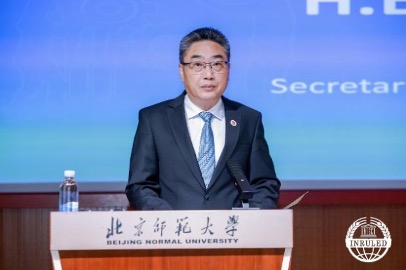
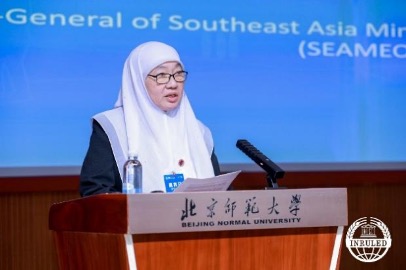
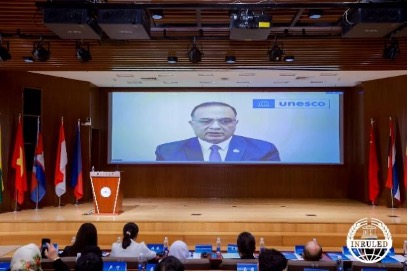
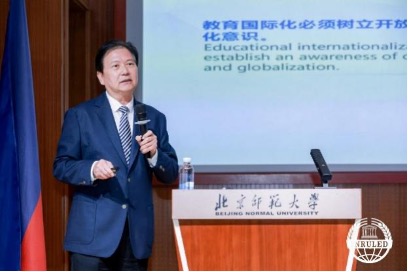
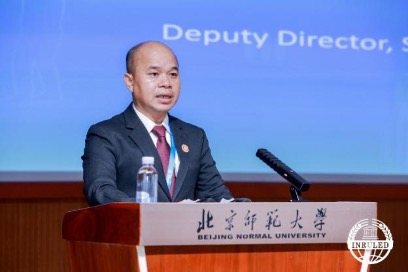
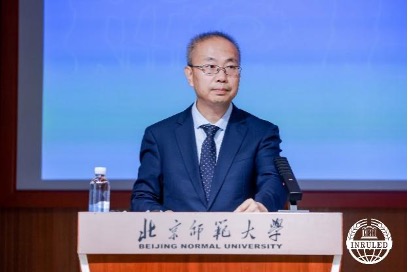
During the Country Report session, six representatives delivered thematic presentations: Dr. Pengiran Nor Jeffrieyah Binti Pengiran Mohamad, Divisional Director of Curriculum Planning and Development Department at Institute of Brunei Technical Education of Brunei Darussalam, Mr. SEM Bunthoun, Deputy Director of Quality Assurance of the Ministry of Labour and Vocational Training of Cambodia, Mr. ZHOU Xianhai, Deputy Director of the Smart Vocational Education Development Center of the Higher Education Press of China, Dr. Xaybandith Rasphone, Vice-President of the National Chamber of Commerce and Industry (LNCCI) of the Lao PDR, Ms. Wan Marina binti Wan Mohd Nowalid, Deputy Director of Industry and Community Collaboration Division at Department of Polytechnic and Community College Education of the Ministry of Higher Education of Malaysia, and Dr. Min Maung Maung, Deputy Permanent Secretary of the Ministry of Education of Myanmar. The representatives have outlined the common vision and diverse practices of their respective country in promoting TVET development and advancing TVET transformation in response to the digital and green transitions, especially innovations in curriculum upgradation, strengthening public-private partnerships, promoting lifelong learning, and utilizing digital technologies to expand educational coverage and quality. The Country Report session was moderated by Mr. Rien Chamrong, Vice Head of Public Relations and Partnership, SEAMEO TED.
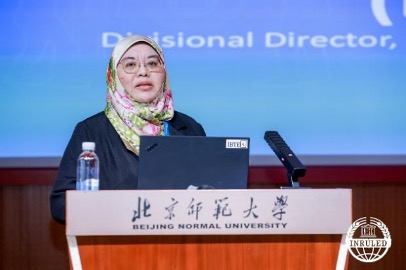
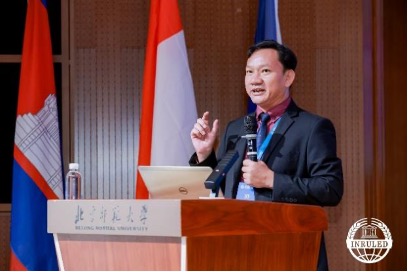
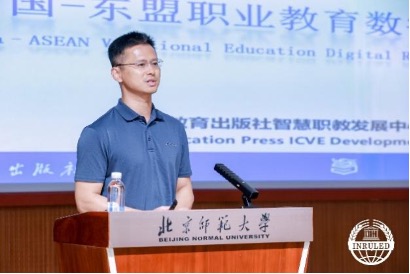
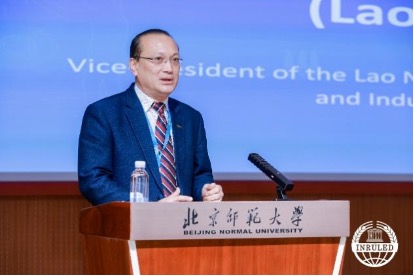
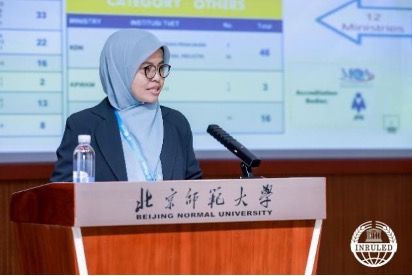
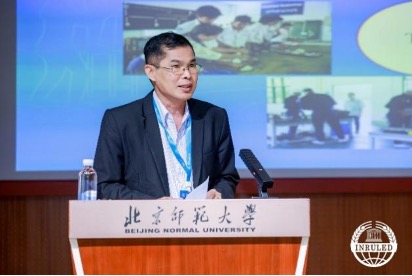
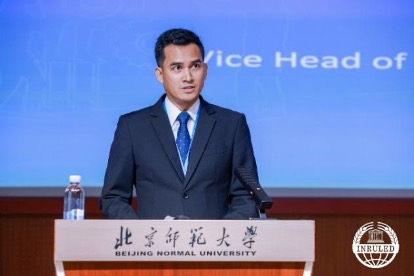
During the Best Practices session, six country representatives shared innovative cases, including Ms. Ai Susi Susanti, Vice Director of Academic at Politeknik Piksi Ganesha of Indonesia, Dr. (Prof) Edgar G. Cue, President of Mountain Province State University and Prof. Dr. Silvia Catalan Ambag, Graduate Professor Lyceum of the Philippines University from the Philippines, Mr. PEH Wee Leng, Director of the School of Electronics & Info-Comm Technology at Singapore’s Institute of Technical Education, Dr. Saranthon Maungmee, Lecturer in Digital Business and Technology Program at Siam University of Thailand, Mr. Natalino Alarico Barreto Ximenes, Director for Special Project of Institute of Business (IOB) of Timor-Leste and Dr. Ly Thien Trang, Vice President of Ho Chi Minh City University of Technology (HUTECH) of Vietnam. They showcased profound changes, common concerns, and innovative cases in TVET institutions across diverse country contexts. Viewing TVET as a key lever for promoting social equity, poverty reduction, sustainable rural development, and national modernization, TVET institutions have applied innovative models such as adopting smart learning platforms, promoting blended learning and flipped classrooms, and applying AI and VR or AR technologies to ensure quality education opportunities for marginalized groups and to empower rural development. Facing common challenges in weak infrastructure, funding shortages, and misalignment between curriculum content and industry needs, innovative approaches such as deepened industry-education integration, better alignment with international industry certifications, and micro-credentials are adopted to enhance the adaptiveness of TVET system. The case report session was moderated by Dr. QI Xinjian, Assistant Director of UNESCO INRULED.
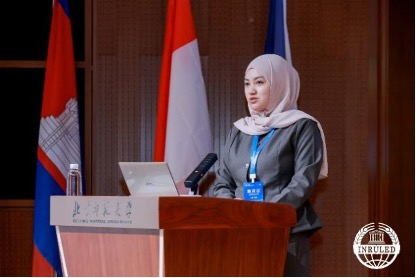
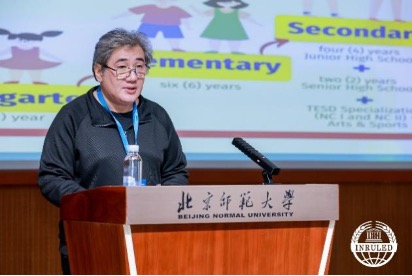
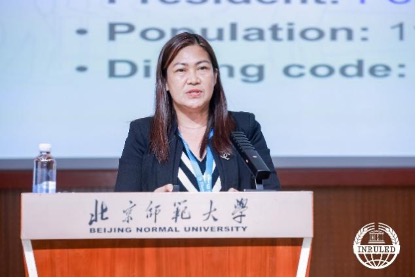
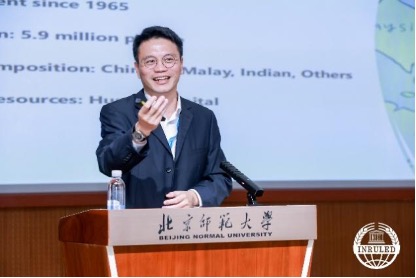
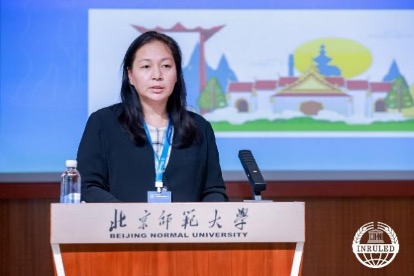
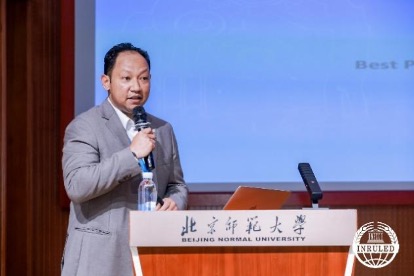
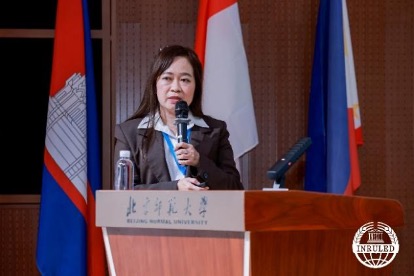
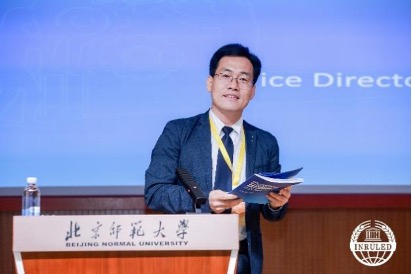
During the workshop, participants attended two parallel forums of the 2025 Global Smart Education Conference, respectively themed on “Digital Transformation in TVET” and “Smart Villages and Education for Rural Transformation.” Through case reports and roundtable discussions, the participants interacted and shared with the audience, deepening mutual learning about cutting-edge theories, policies, and practices in the digital transformation of TVET and smart village construction and rural education development. Participants also conducted field visits to Alibaba Cloud Group, the Center for Language Education and Cooperation of China, Beijing Polytechnic University, and Higher Education Press of China, engaging in in-depth exchanges and dialogues with representatives for relevant institutions.
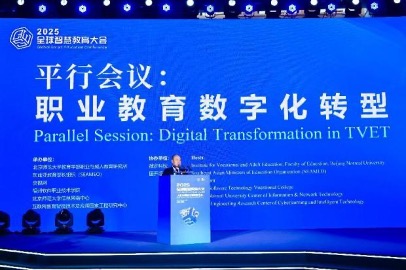
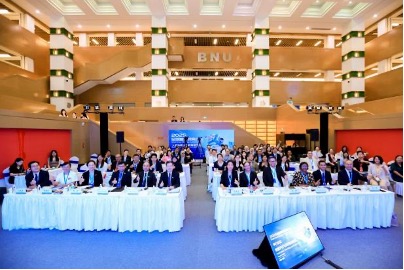
On the morning of 18 August, delegates visited Alibaba Cloud Computing to gain deep insights into Alibaba Cloud’s strategic deployment and innovative practices in empowering education development with digital solutions, promoting digital and information literacy, and supporting rural education.
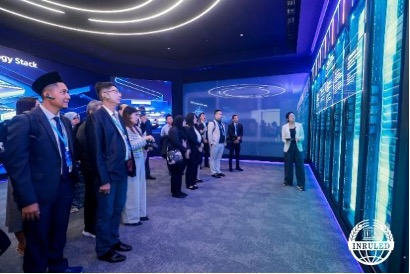
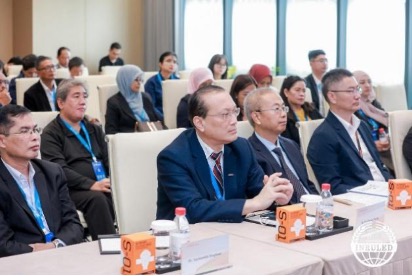
On the afternoon of August 20, participants visited the Center for Language Education and Cooperation of China, experiencing the beauty of Chinese culture and language, and systematically learning about cooperation opportunities in programmes such as “Chinese + Vocational Skills” and “Chinese + Professional Skills” education, exploring potential to cultivate applied Chinese language talents that advance practical cooperation between China and Southeast Asian countries.
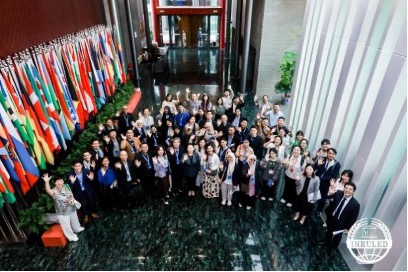
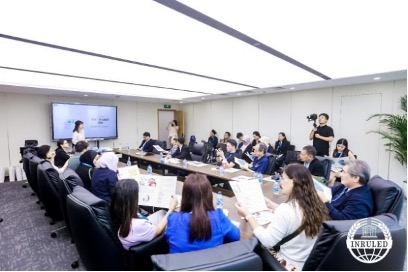
On the morning of August 21, delegates visited Beijing Polytechnic University and participated in the ASEAN-China TVET International Cooperation and Talent Cultivation Exchange Meeting, which is hosted by the University and supported by the Beijing Education Association for International Exchange. At the meeting, representatives from TVET colleagues in Beijing and Southeast Asia delivered presentations introducing their respective institutions. With more than 10 local TVET institutions from Beijing participating in the meeting, the two sides have engaged in solid discussions on academic collaboration, talent cultivation, and resource sharing.
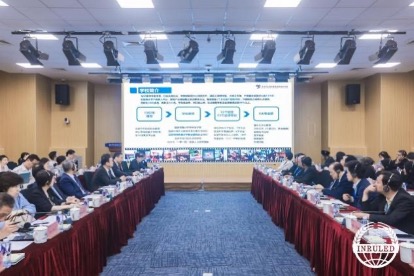
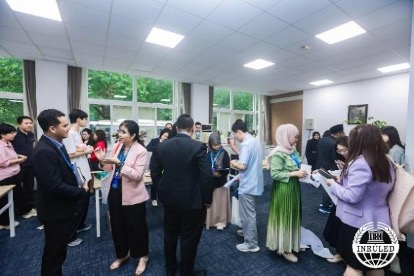
On the afternoon of August 21, participants visited Higher Education Press (HEP) of China, gaining deep insights into the HEP’s work and digital innovation practices in overseas publishing, digital textbook publishing, teacher development, and smart vocational education development, and embarked on in-depth discussions on cooperation needs.
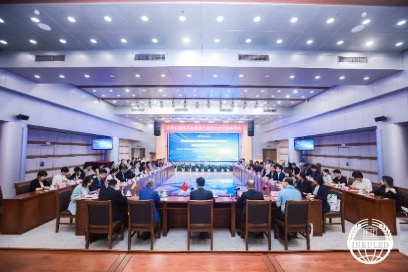
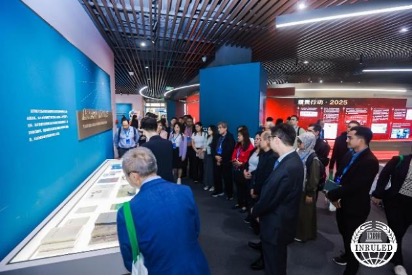
On the evening of the 21st, participants attended the wrap-up session and cultural night event, sharing their insights and key takeaways from the programme and further deepening cultural understanding through cultural performances and teamwork.
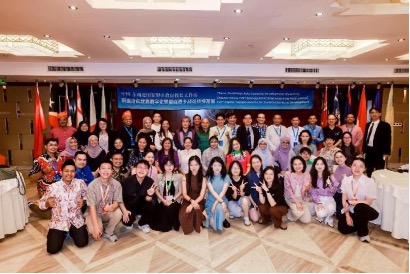
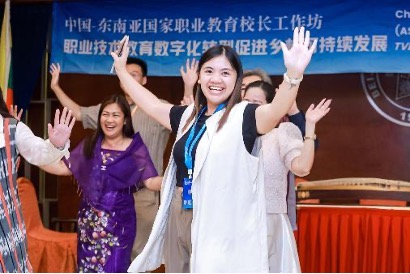
The successful organisation of this workshop has deepened policy dialogue, academic discussions, and practical exchanges between China and Southeast Asian countries in TVET and rural education and development. By promoting mutual learning and capacity building, and strengthening partnerships and networks, the workshop not only injected new momentum into sustainable rural development but also leveraged the collective efforts of the TVET system to accelerating the achievement of the United Nations 2030 Agenda.










